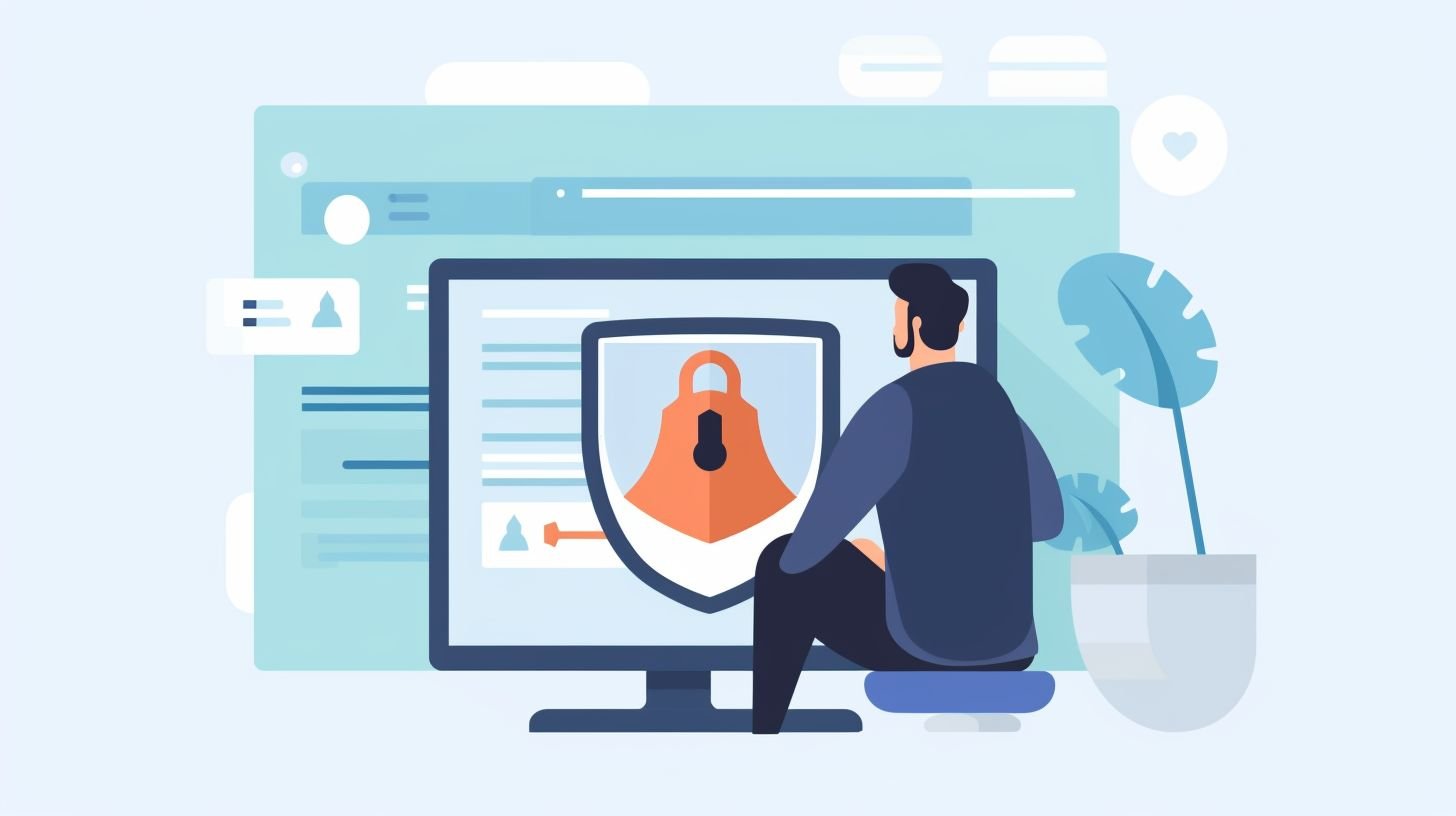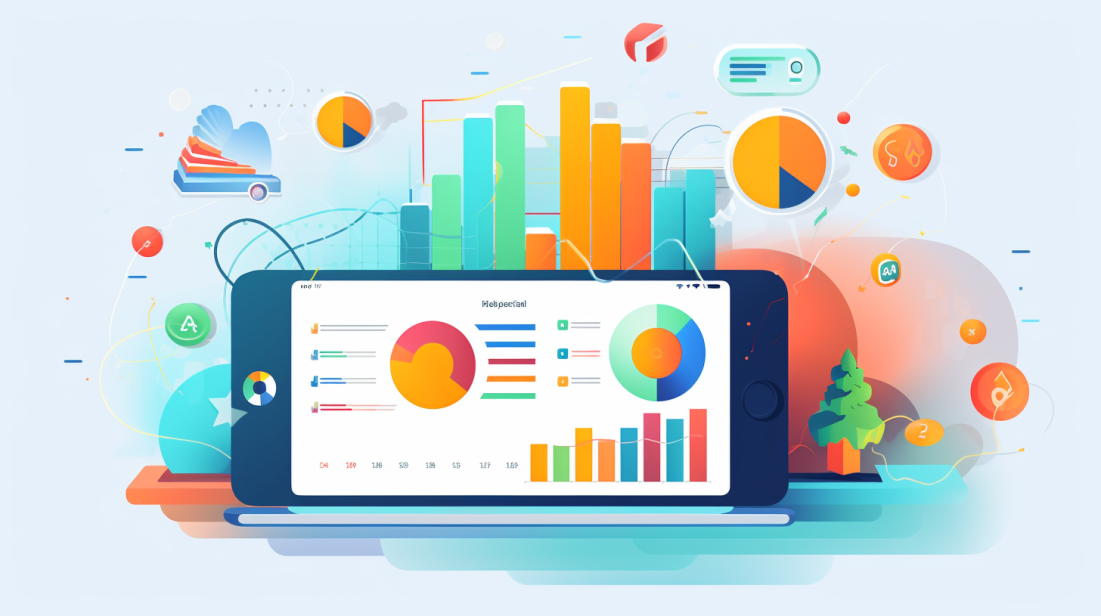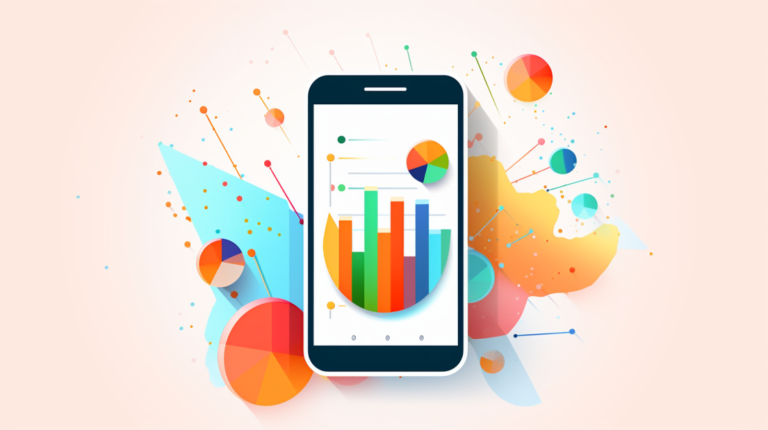What Is Open Banking And Should You Care?

Key Takeaways
- Open banking lets you share your bank info with apps and businesses. It makes using fintech safer and easier.
- This new way of banking helps you see all your money details in one place. You can better plan and save by seeing where the money goes.
- Open banking also changes how banks work. It paves the way for neobanks that offer user-focused services.
- Keep safe when sharing data in open banking. Always double – check companies, watch out for scams, and make sure online payments are secure.
Definition of Open Banking
 Open banking is a big change in the bank world. It lets you share your bank data with different apps and businesses. This can make it easier and safer to use fintech apps like Venmo or Robinhood. Before, sharing data was like giving your car keys to a stranger. Now, open banking makes it safer. Some people said banks were stopping other companies from using their customer data because they were scared of risk. But open banking is changing that now! It could lead to new and better ways of doing things in personal finance.
Open banking is a big change in the bank world. It lets you share your bank data with different apps and businesses. This can make it easier and safer to use fintech apps like Venmo or Robinhood. Before, sharing data was like giving your car keys to a stranger. Now, open banking makes it safer. Some people said banks were stopping other companies from using their customer data because they were scared of risk. But open banking is changing that now! It could lead to new and better ways of doing things in personal finance.The Evolution and Significance of Open Banking
Open Banking has made big changes over time. It started simple, letting people share bank data with other apps. Now it’s much more than that. In the UK, Open Banking is already a big deal. In the US, it’s catching up fast too! President Joe Biden passed an order to speed things up and make Open Banking even better in America. He asked the Consumer Financial Protection Bureau (CFPB) to play a part in this change too. They are now working on new rules for sharing bank data and helping customers use their data how they want! This whole process relates back to Section 1033 of the Dodd-Frank Act – something very important in our law here. The CFPB is doing its best to make these improvements, but there’s still work being done on it right now as we speak.The Potential Opportunities with Open Banking
 Open Banking unlocks a host of opportunities, from enhancing user experience and increasing financial transparency to enabling better control over your finances. Intrigued? Keep reading to explore how you can benefit from this innovative approach in banking.
Open Banking unlocks a host of opportunities, from enhancing user experience and increasing financial transparency to enabling better control over your finances. Intrigued? Keep reading to explore how you can benefit from this innovative approach in banking.Enhanced User Experience
Open banking can make your life easier. It makes it safer and simpler to use fintech apps, like Venmo or Robinhood. All your bank data is in one spot with a few clicks. Payments can also happen without pulling out a card. Plus, extra safety steps are there when you do online payments. This helps keep your money safe from scams and bad people. So, open banking does not just make things better for banks or other businesses – it makes them better for you as well!Increased Financial Transparency
Open banking gives a clear view of your money. It lets you see all your bank details in one place. This means no hidden fees or charges that you don’t know about. You can see every penny you have and where it goes. With open banking, banks can’t hide anything from their customers anymore. So, using this system makes everything fair for everybody.Better Financial Management
Open Banking can help me handle my money in a smarter way. It gives me access to all of my bank account details and payments. I can see it all in one place on my mobile app or online banking service. Knowing what I spend each month, where the money goes, and how much is left, makes it easier for me to plan ahead. No more guesswork or late fees because now I stay up-to-date with regular payment details and direct debits! This means less stress over bills and more time enjoying life. So yes, Open Banking does make a real difference for better financial management.How Open Banking Affects Consumers
Open banking offers greater control over personal financial data for consumers. With this innovative system, access to a wide range of financial services improves dramatically. It paves the way for highly personalized banking experiences tailored to individual needs and preferences. By offering more power, choice, and customization options to users, open banking is revolutionizing how consumers interact with financial institutions.Control Over Personal Financial Data
Open banking gives you more say over your money info. You choose if a Fintech app like Venmo or Robinhood can use your bank data. Say yes, and the app may help with tasks like budgeting. But be safe. Know who gets your data and what they do with it. Banks used to keep close hold of customer data. Now, rules like the Dodd-Frank Act make sure banks share this info when asked. Still, some banks fight these changes in court because of worries about safety and cost. This change is good for you, though – it means more power over where and how your money records are used.Improved Access to Financial Services
Open banking opens a new door for everyone. It makes it easy to use bank services. You can get your account information anytime you want. You just need to log into your bank’s app or online portal. Now, more people can use these services. Even online stores offer ways to pay without needing a credit card! This is all thanks to open banking.Potential for Personalized Banking Experiences
Open banking can give you a bank experience that fits your needs. It helps banks see how you spend and save money. With this kind of data, they can make services to help you better. This could be tips on saving money or new ways to pay bills. They may also offer products just for you based on your spending habits. You don’t have to worry about too many options. Open banking aims to give services that will work for every person’s unique life and goals.The Intersection of Open Banking and Fintech
 The intersection of open banking and fintech is transforming the financial landscape. Open banking allows neobanks to present an alternative to traditional banking institutions with user-focused services, while paytech leverages it for direct payments and advanced money management tools. This synergy results in a modernized, consumer-centric approach to finance that is redefining our relationship with money.
The intersection of open banking and fintech is transforming the financial landscape. Open banking allows neobanks to present an alternative to traditional banking institutions with user-focused services, while paytech leverages it for direct payments and advanced money management tools. This synergy results in a modernized, consumer-centric approach to finance that is redefining our relationship with money.The Role of Neobanks
Neobanks are making big waves in the world of open banking. Here’s what you should know:- These new, tech – forward banks play a big role in open banking.
- They can pull in lots of different types of data.
- With your ok, they can view info from your current accounts, savings, e – money accounts and even credit cards.
- Sharing this account data with neobanks is pretty simple. You might do it by logging into your bank app or sending safe bank details through a secure portal.
- Neobanks help make online shopping easier too! Some online shops can now get payments without needing a card, all thanks to open banking services.
- And don’t worry because safety is a top concern here! Things like two – factor authentication offer extra layers of protection for online payments using open banking.
Impact on Traditional Banking Institutions
Open banking is shaking things up for traditional banks. It’s pushing them to upgrade their ways and protect client data better. They’re investing in stronger tools to keep money and information safe. Open banking also makes it easier for people to get loans or mortgages. This could be bad news for old-style banks, as they might lose customers who find it easier to bank online. In the face of new tech like open banking, these institutions have a lot of work ahead if they want to stay in the game.The Rise of Paytech
Paytech is growing fast. This growth comes from open banking and fintech joining forces. President Joe Biden even gave it a push last July! He told the Consumer Financial Protection Bureau (CFPB) to make rules. These rules let people move their bank data to other businesses if they wish. Now, banks and fintech firms are teaming up. Together, they’re making data-sharing safer than ever before.Safety Considerations in Open Banking
 While Open Banking promises many benefits, it’s crucial to be aware of safety considerations such as data protection and privacy concerns, identifying scams, and ensuring secure online transactions – let’s delve deeper into how you can navigate these issues safely.
While Open Banking promises many benefits, it’s crucial to be aware of safety considerations such as data protection and privacy concerns, identifying scams, and ensuring secure online transactions – let’s delve deeper into how you can navigate these issues safely.Data Protection and Privacy Concerns
Sharing your bank data can be scary. You worry if your money is safe. Open banking must protect your personal data. It aims to keep using fintech apps both simple and secure. Sometimes, banks stop businesses from collecting your data. They do this because they are worried about safety and blame. To fight these concerns, banks work together with fintech firms. This helps make sharing of data safer. If you use open banking services, there’s a way for you to ensure its safety too! Check that the company is signed up with FCA and the Open Banking website before working with them. If something goes wrong, don’t be afraid to complain.Identifying and Avoiding Scams
Keeping safe from scams in open banking is key. Here are some tips:- Use only FCA registered firms.
- Check the Open Banking website for listed providers.
- Be wary of unexpected emails asking for bank data.
- Double – check all sites and apps before sharing any details.
- Use two – factor authentication to boost security.
- Watch out for too good to be true offers – they usually are scams.
- If you think you’ve been scammed, report it to Action Fraud right away.
Ensuring Secure Online Financial Transactions
I am very careful when it comes to my online banking. Open banking helps with that. Here are ways it ensures secure online transactions:- Two-factor authentication: It is a safety check added to protect my bank data. It confirms that I am the one trying to access my account.
- FCA and Open Banking website registration: Before using an open banking service, I make sure they are registered with FCA and Open Banking website.
- Real-time data sharing: It lets me see my financial details in real time, so I can spot mistakes fast.
- Secure fintech apps: Banks and fintech companies work together to make these apps safe for use.
The Future of Open Banking
As technology continues to evolve at a rapid pace, Open Banking is set to become the new normal in future financial systems. This transformation will revolutionize traditional banking by introducing more transparency and control for consumers over their financial data. We can expect further advancements such as real-time payments, personalized services based on our spending habits, and streamlined lending processes relying on digital verification of assets. However, this progress should be accompanied by robust measures to safeguard personal information from potential data breaches. The collaboration between FinTech companies and banks opens up possibilities for innovative business models that could enhance access to financial services particularly for underbanked populations. So yes, we should care about Open Banking – it’s not just reshaping our banking experiences but also redefining the future of the global finance industry!Predicted Trends
Predicted trends in open banking are shaping the future of finance.- Open banking is becoming more popular. President Joe Biden backs it with an executive order.
- Banks and fintech firms will work together more. This brings safe ways to share data.
- We can expect new rules on data sharing from the Consumer Financial Protection Bureau (CFPB). These will help users move their bank data to a different bank if they wish to.
- Some banks could try to stop companies from getting customer data. They worry about safety and who will be at fault if things go wrong.
- Open banking might bring better services for people who do not use banks much or at all right now.
Potential Challenges
 Open banking has a few tough parts too. Safety is the biggest worry. There are more chances of bad people getting into your bank details when you use open banking. They can take money from your account if they get in. Sometimes, even with extra steps like two-step checks for online payments, this can happen. So, keeping your bank details safe is a big challenge for open banking in the future.
Open banking has a few tough parts too. Safety is the biggest worry. There are more chances of bad people getting into your bank details when you use open banking. They can take money from your account if they get in. Sometimes, even with extra steps like two-step checks for online payments, this can happen. So, keeping your bank details safe is a big challenge for open banking in the future.Why Should Private Banking Customers Care About Open Banking?
Private banking customers should care about open banking because it provides them with a broader range of financial services and tailored solutions. With a private banking overview, customers can access a consolidated view of their accounts across multiple institutions, enabling better financial planning and decision-making. Open banking also fosters innovation, allowing customers to benefit from new digital tools and platforms for enhanced wealth management. Embracing open banking can empower private banking customers to have more control over their financial lives and stay ahead in an ever-evolving banking landscape.






